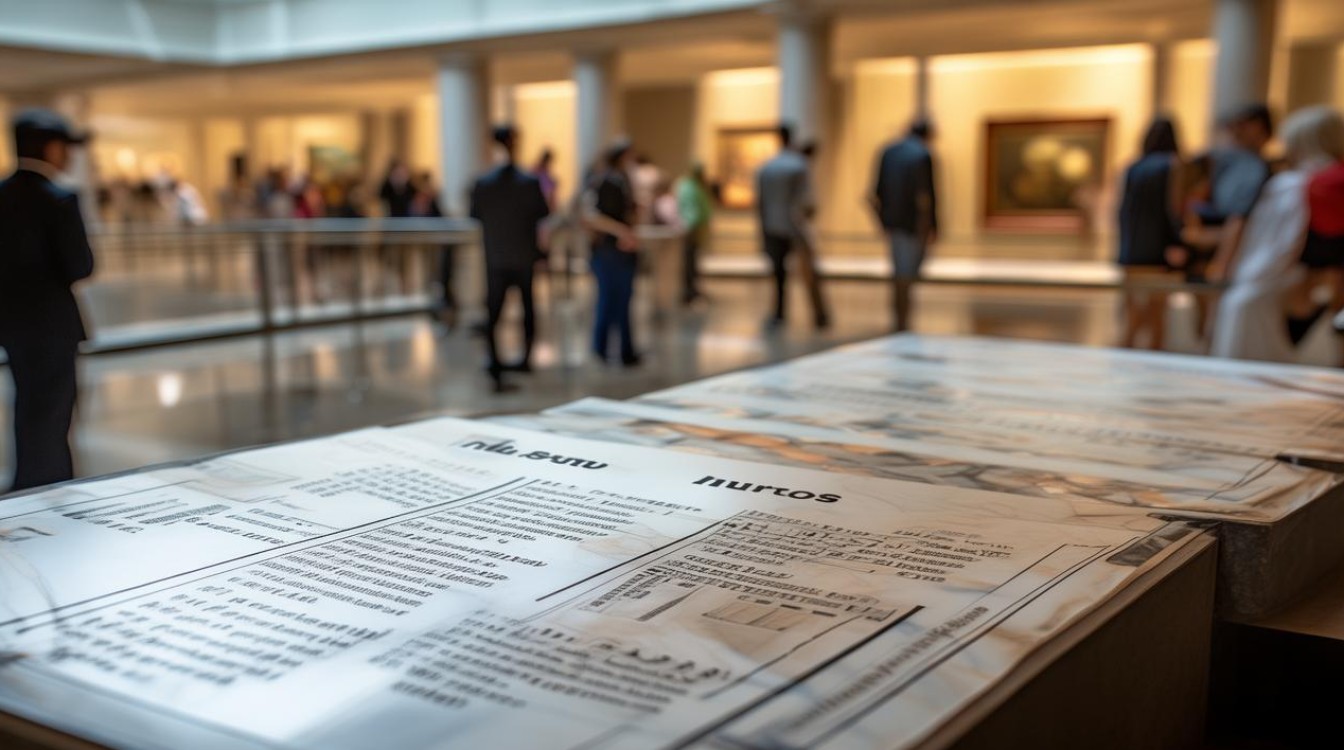雅思口语Part 1中的“Museum”话题是高频考点,也是考生展示语言能力的重要机会,这一部分虽难度较低,但需要清晰的结构、自然的表达和丰富的细节,以下从常见问题、回答思路、词汇拓展和注意事项四个方面展开,帮助考生高效备考。

常见问题及回答思路
雅思口语Part 1关于“Museum”的问题通常围绕“是否喜欢博物馆”“常去哪种博物馆”“印象深刻的经历”等展开,旨在考察考生的日常经历和简单观点表达,以下是高频问题及实用回答框架:
Do you like visiting museums?
回答思路:明确立场 + 简单理由 + 个人经历(可选)。
示例:
“Yes, I really enjoy visiting museums. They’re like time capsules—you can hold a 2,000-year-old pottery piece and imagine how people lived back then. Last month, I visited the local history museum and learned that my neighborhood used to be a fishing village. It felt so surreal to connect the past with the present.”
关键点:避免简单回答“yes”或“no”,用具体感受或经历支撑观点,体现细节描述能力。
How often do you go to museums?
回答思路:频率 + 最近一次经历 + 原因(为什么常去/不常去)。
示例:
“I try to visit a museum at least once every two months. There’s a modern art museum near my university, and I went there last weekend to see an exhibition on digital art. The interactive installations were fascinating—you could ‘paint’ with hand movements, which made art feel more accessible.”
关键点:频率词(occasionally, regularly, seldom)搭配具体场景,让回答更真实。
What kind of museums do you like?
回答思路:类型 + 喜欢的原因 + 举例说明。
示例:
“I’m particularly drawn to science museums. Unlike art museums that display static paintings, science museums have hands-on experiments. For example, at the Shanghai Science and Technology Museum, I tried a simulated earthquake experience, which helped me understand seismic waves better. Learning through interaction is much more engaging for me.”
关键点:明确博物馆类型(art, history, science, natural history等),并对比或举例说明偏好,展示逻辑思维。
Did you go to museums when you were a child?
回答思路:童年经历 + 具体记忆 + 对现在的影响。
示例:
“Yes, my primary school often organized field trips to the natural history museum. I still remember the dinosaur skeletons—they were so huge that I stood there staring for ages. Those visits sparked my interest in biology, and now I’m studying zoology at university. It’s amazing how a childhood experience can shape your future path.”
关键点:用“具体记忆”(如恐龙骨架、互动展品)增强画面感,体现语言感染力。
核心词汇与表达
掌握相关词汇能提升回答的准确性和丰富度,以下分类整理实用表达:
博物馆类型
- Art museum(艺术博物馆)
- History museum(历史博物馆)
- Science and technology museum(科技博物馆)
- Natural history museum(自然历史博物馆)
- Specialized museum(专题博物馆,如汽车博物馆、考古博物馆)
展品与体验
- Exhibit/exhibitio(展览/展品)
- Artifact(手工艺品,文物)
- Interactive display(互动展示)
- Guided tour(导览)
- Audio guide(语音导览)
- Diorama(立体模型)
感受与评价
- Fascinating(迷人的)
- Informative(有信息量的)
- Engaging(吸引人的)
- Insightful(富有洞察力的)
- Overwhelming(令人眼花缭乱的)
- Nostalgic(怀旧的)
动作与场景
- Wander around(闲逛)
- Admire the exhibits(欣赏展品)
- Take photos(拍照,注意部分博物馆禁止拍照)
- Attend a lecture(参加讲座)
- Immerse myself in...(沉浸于...)
回答技巧与注意事项
结构清晰,逻辑连贯
采用“观点+理由+例子”的结构,避免内容碎片化,例如回答“Do you like museums?”时,先说“Yes, I do”,再解释原因(“They offer a tangible connection to history”),最后举例(“Last year I saw a 10th-century sword at the military museum...”)。
细节取胜,避免空泛
考官更关注“你”的经历,而非通用观点,与其说“Museums are interesting”,不如描述具体展品:“I was amazed by the ancient Egyptian mummy—its wrappings were so well-preserved that you could still see the facial details.”
真诚自然,避免模板化
不要背诵模板答案,结合自身经历调整内容,若很少去博物馆,可诚实说明原因:“I don’t visit museums often because I’m more into outdoor activities, but I went to the art museum last month and loved the impressionism exhibition—it was a refreshing change.”
语法与流利度平衡
Part 1更注重交流流畅性,无需追求复杂句式,可适当使用简单连接词(and, but, so, because)和从句(which, that),确保表达清晰。“The science museum, which I visited last year, has a planetarium where you can watch 3D movies about space.”
博物馆话题相关表达拓展
以下表格整理了不同场景下的实用句型,帮助考生灵活应对:
| 场景 | 表达句型 |
|---|---|
| 表达兴趣 | “I’ve always been fascinated by ancient civilizations, so history museums are my favorite.” |
| 描述展品 | “What impressed me most was a collection of Ming Dynasty porcelain, which had intricate blue patterns.” |
| 提出建议 | “If you visit the museum, don’t miss the interactive zone—it’s perfect for kids!” |
| 谈论优缺点 | “The downside of some popular museums is the long queue, but the online booking system helps a lot.” |
FAQs
如何回答“Do you think museums are important for society?”?
回答时需结合社会功能,如教育、文化传承、旅游等,示例:“Yes, museums play a crucial role in preserving cultural heritage. For example, the Palace Museum in Beijing not only displays imperial artifacts but also educates visitors about Chinese history and traditional craftsmanship. Additionally, museums attract tourists, boosting local economies.”
如果没去过博物馆,该如何回答相关问题?
可坦诚说明,并补充“计划去”或“通过其他途径了解”,示例:“I haven’t had the chance to visit a museum yet, but I’ve watched many documentaries about natural history museums. I’m particularly interested in the dinosaur exhibits, so I plan to visit the local museum during the next holiday.”
通过以上系统梳理,考生可针对“Museum”话题积累素材、优化表达,在考试中自信展示语言能力,关键在于结合自身经历,用细节和逻辑打动考官,同时保持自然流畅的交流节奏。











